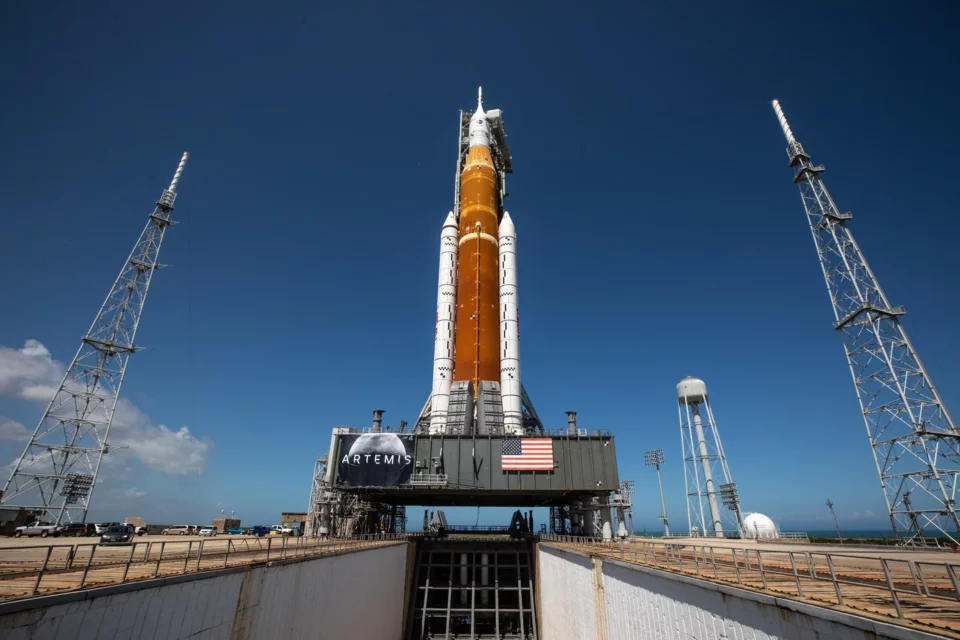National Aeronautics and Space Administration (NASA) called off the test flight of its largest-ever Moon rocket Artemis 1 because of a temperature issue with one of the four giant engines.
“The launch director has called a scrub for the day,” the US space agency said. Alternative dates for the launch of the Artemis 1 mission, an uncrewed flight around the Moon as part of an ambitious program to eventually go to Mars, are Friday and the following Monday.
Artemis 1 blastoff had been planned for 8:33 am (1233 GMT) on Monday but was put on hold because of a temperature problem with one of the four engines on the 322-foot (98-meter) Space Launch System (SLS) rocket.
Tens of thousands of people — including US Vice President Kamala Harris — had gathered near the Kennedy Space Center in Florida to watch the launch of the Artemis 1 Moon rocket, which comes 50 years after Apollo 17 astronauts last set foot on the Moon.
The goal of the flight is to test the SLS and Orion crew capsule that sits atop the rocket. Mannequins equipped with sensors are standing in for a crew for the mission.
READ THIS
Russia to quit International Space Station ‘after 2024’
NASA could return astronauts to space station before replacements arrive
Overnight operations to fill the orange-and-white rocket with more than three million litres of ultra-cold liquid hydrogen and oxygen were briefly delayed by a high risk of lightning.
Around 3:00 am, another hiccup emerged: a potential leak was detected during filling the main stage with hydrogen, causing a pause. After tests, the flow resumed.
But NASA engineers later detected a problem with the temperature in one of the four RS-25 engines and put a hold on the countdown before eventually scrubbing the launch.
The rocket’s Orion capsule is to orbit the Moon to see if the vessel is safe for people in the near future. At some point, Artemis aims to put a woman and a person of colour on the Moon for the first time.
“This mission goes with a lot of hopes and dreams of a lot of people,” NASA Administrator Bill Nelson said.


